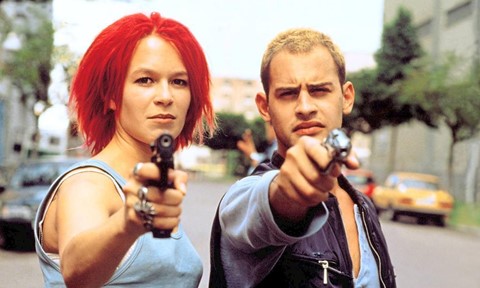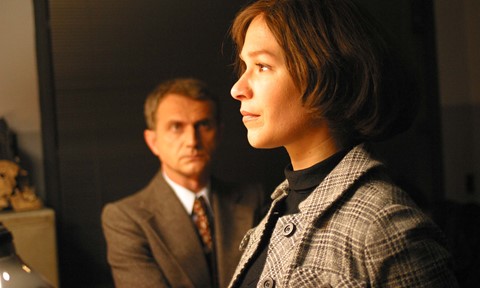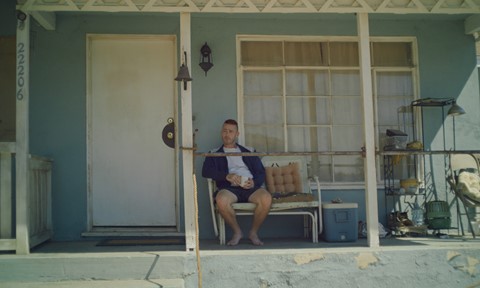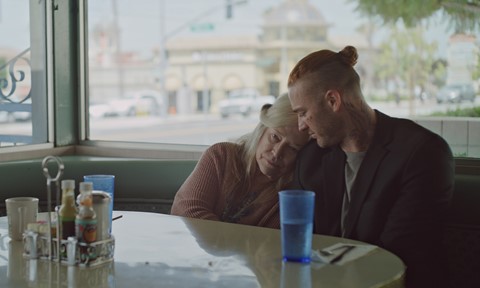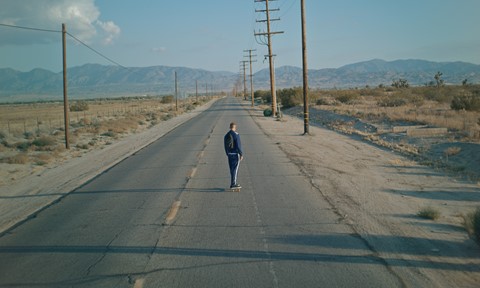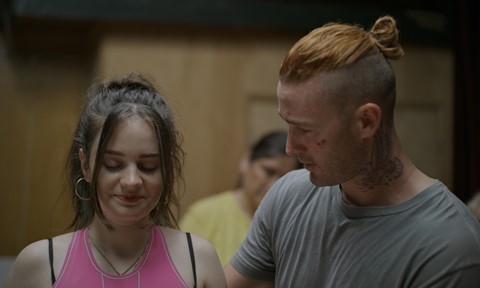To Hollywood in running shoes

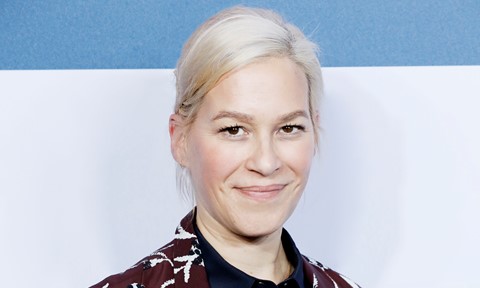
Lola runs through Berlin to save the life of her boyfriend. Pausing briefly to catch her breath, the young woman stares resolutely into the camera, her bright red fuzzy hair blazing like flames in the wind. Then she runs some more.
It’s been 23 years since Franka Potente sprinted across the screen in Tom Tykwer’s iconic thriller RUN LOLA RUN, which was her international breakthrough. Loud, hectic, and offbeat, that film was so very different from HOME, Potente’s first feature film as a director, which is now premiering at FILMFEST MÜNCHEN. HOME is unobtrusive, calm, and cautious and shows. The film depicts what it’s like to no longer be welcome in the place you come from, when that place simply no longer wants to be your home.
Franka Potente has long outgrown Lola’s running shoes. Now 46, she’s moved beyond acting and into authoring screenplays, directing films, and writing books. For this artistic versatility, she’s now being honored with the Margot Hielscher Award.
Franka Potente grew up in Dülmen in North Rhine-Westphalia. She left her hometown partly because of a bad breakup, as she revealed to director John Carpenter in the TV interview program “Durch die Nacht mit...”, and moved to Los Angeles. There she didn’t stand still either, smuggling drugs as a perky flight attendant in BLOW (2001) and helping Matt Damon find THE BOURNE IDENTITY (2002). Always speedy, always in action. The German curses she utters in these US films are a reminder of her background. Overall, Potente remained true to her origins and repeatedly took on exciting roles in German film productions, such as Beate Klarsfeld in the TV movie MANHUNT (which premiered at FILMFEST MÜNCHEN 2008) and a librarian entangled in various affairs in the film adaptation of Michel Houellebecq’s novel ATOMISED (2006).
AN AUTHOR AND ACTIVIST
Potente’s career began in Germany with the romantic comedy NACH FÜNF IM URWALD (1995), for which she broke off her acting training at the Otto Falckenberg School. The move paid off, as the film helped her to gain nationwide recognition. As in her movie roles, Potente tends to be a rebel in real life as well, as she has demonstrated in her commitment to PETA, posing nude with Bela B from the punk rock band Die Ärzte for an anti-fur campaign by the animal-rights activists. She also advocated veganism in provocative videos bearing the slogan “Arme Sau” (“Poor pig / poor slob”).
Health and fitness are also the subject of one of her books, “Kick Ass – Das alternative Workout” (2009), co-authored with Karsten Schellenberger, which aims to show people how they can overcome the obstacles they create for themselves. It’s obvious that Potente has long since removed any obstacles in her own life. In addition to making films, she has published four books, including “Zehn. Stories” (2010), ten short stories in which she relates her experiences from various trips to Tokyo and Kyoto. She talks about how she “sensed” the people there: loud in public, quiet in private. Each individual story is a delicate observation of minor gestures or eating habits which reveals her great interest in culture and other people. She applies the same perceptiveness to the United States in her novel “Allmählich wird es Tag” (2014) and in her correspondence with actor, author, and documentary filmmaker Max Urlacher, published in book form as “Berlin – Los Angeles. Ein Jahr” (2005). It’s clear where she was writing from.
That’s because the United States has become Potente’s new home. She once told German talk-show host Harald Schmidt that the way things are done in Hollywood has always been a little foreign to her — probably because she’s retained her Germanness and her directness and writes letters not only to friends, but occasionally also to producers when something doesn’t suit her. In her personal life, at least, she has settled in well. Since 2012, she’s been married to actor Derek Richardson, with whom she has two daughters.
An experimental silent film and
the question of belonging
Potente keeps her personal life, but fortunately not her creativity, private. In 2006, she directed her first film, a short called DIGGING FOR BELLADONNA. She appears to love challenges, because she didn’t take the easy route. Set in 1918, it is a silent film with title cards and actors who gesticulate wildly. Into this environment she drops a punk rocker who is very much able to speak. In so doing, Potente created nothing less than a 43-minute portrait of the world of film, in which silent film kisses the talkies.
For her acting roles, Potente has immersed herself in shady milieux, portraying drug smugglers, a Nazi hunter, and even a medical student pursued by other students who are obsessed with dissection in ANATOMY (2000). In HOME, her first feature film as a director and for which she also wrote the screenplay, she’s now driven by the question of what else may come after action, murder, and homicide. In this German-Dutch co-production, Marvin (Jake McLaughlin) returns home after spending time in prison. No one in this conservative small town in the US welcomes the ex-convict with open arms except his mother, portrayed by the great Kathy Bates. Without much sensationalism, Potente tells a gentle story that quite profoundly addresses the big questions of forgiveness and belonging. Franka Potente observes the United States affectionately but from a distance, and with a gaze that makes for a cinematic portrait that is unusually distinct.
Franka Potente is a rebel, a leading actress in thrillers, an astute author, and a sensitive director. As Lola, she forwent all means of transportation and relied entirely on her feet. Since then, she’s rocketed through the world — and now to FILMFEST MÜNCHEN 2021.
The Award Ceremony: Margot Hielscher Award will take place on July 6th.
